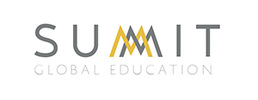COM 327: CROSS CULTURAL COMMUNICATIONS in the european union
Purpose:
Introduction:
Course Description:
Course Objectives: Upon successful completion of this course students will be able to:
Students:
Prerequisites:
Course Requirements:
Teaching Procedures and Methodology:
Recommended Readings:
Supplementary Readings:
Term Project:
Team Project - Deliverables:
Components of Final Grade:
Grading Scale:
Useful Websites:
Credit Transfer:
Host University:
Academic Integrity:
Schedule of Classes and Professional Visits:
Course Outline: All of our courses are designed with a modular format. Students should expect to cover at least 80% of the content per module, depending upon the Session selected. Module 1
Module 2
Module 3
Module 4
Module - Introduction to the European Union
Upon the completion of this course students will be able to:
|
Notes:
| |||
Note: course offerings are subject to change.



